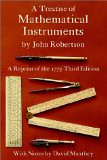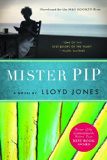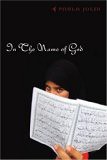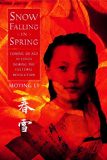Today, we return to our regular book reviewing! These are both adult non-fiction titles that were recieved as part as
Mini Book Expo for Bloggers, which if you are a book blogger and don't know about, you should totally check out.
Hurricane of Independence: The Untold Story of the Deadly Storm at the Deciding Moment of the American Revolution Tony Williams
In September of 1775, when the American colonies were preparing for war, a hurricane struck its way up the East Coast, affecting many of the revolutionary players. The hurricane, while taking many lives where it first hit in North Carolina's Outer Banks, did not have much effect on history. Williams uses it as a window in which to view the beginning of the war. Sadly, the window is not big enough to do what he wants to do and, overall, the book lacks cohesion and focus. More than anything, the storm serves as an excuse for an extended metaphor about the brewing political tempest. The book ends with a chapter on a second hurricane that struck Newfoundland shortly after the first struck the East Coast. Where Williams's conclusions that this was a different storm are interesting and new, one must question why they are included on the book of ostensibly about the American Revolution.
Although the premise is weak, and much of the material has been covered before, Williams's writing style is very engaging. For readers who have not yet read their way through the plethora of books on the Revolution,
Hurricane of Independence is highly readable and interesting. I'm not just saying that! This book had some organization issues, but really, an
excellent writing style and I look forward to reading more by the author.
Williams has a knack for writing about the weather and I wish he would have done a history of eighteenth century North American hurricanes. I firmly believe Williams could write a fascinating account, both due to his writing style and the fact that in this title, that is where he really added to the field.
Published by Sourcebooks.A Treatise of Mathematical Instruments John Robertson
This is a reprint of the third edition of this title, which came out in 1775. Already I know you're asking, "Jennie, why on EARTH did you ask for this book?" Well... science history is pretty cool.
The parts of this book that I understood were really interesting. It's not an easy book to understand--first off, the font is based on the original, when they used s's that looked like f's. Plus, um... math tools I've never seen. And... math.
It starts off with a publishing history about the Sector Compass, which is what math people used
before the slide rule. Now, this might sound dull, but there was much intellectual theft! And Galileo suing people for intellectual theft! Even though maybe he didn't invent the thing after all! Intrigue!
The treatise then discusses basic math tools. After a lengthly explanation of each, and how it might be used, there are several practice problems with long explanations on how to solve the problem using the tool in question. I totally understood the part on how to use a protractor, but when we got to the sector compass? And there were logs and trig functions? I really tried, but my eyes glazed over.
However! There are great discussions on how to make your own carbon paper, eighteenth century style, as well as a ton of information on British naval theory (and a mathematical proof on the most space-efficient way to store ones cannon balls), architecture, and how to draw using perspective. PLUS! When discussing the gunners callipers, Robertson is explaining how to use the conversion tables that are printed on the side. One of the example questions was the following:
How long with 33 butts of beer serve a crew of 324 men, allowing to each man 3 wine quarts a day?. Talk about real life examples! This shows how important beer was to the navy (because it's sanitary to drink?) and is just a very practical question because there are a several conversions that need to be done to answer the question.
Also, the lack of standardization! A beer gallon was different than a wine gallon! One of the charts on the callipers was converting English feet to French feet (the measurement, not the body part.)
But, overall, there were many pages of computations I did not understand. The parts of this book I did get were fascinating. The other parts made me feel dumb.
Published by Invisible College Press.*hee hee*
butts of beer *hee hee*
We've already established that I'm 10.
 Anyway, today's Poetry Friday selection is rather depressing. Blame it on the (much needed) rain or something... anyway, I'm currently reading The Last Days of Old Beijing: Life in the Vanishing Backstreets of a City Transformed by Michael Meyers. I'm only about 70 pages in, but so far it's a fascinating look at the destruction of the hutong neighborhoods. On one hand, you're losing neighborhoods and homes, without recourse. One the other hand, these are homes built hundreds of years ago that aren't retro-fitted for heat or indoor plumbing and haven't had the upkeep been put into them... I'll post much more extensively on this later-- I've been kicking around a post on this topic since I went to Beijing last fall and I think this book will help frame what I want to say.
Anyway, today's Poetry Friday selection is rather depressing. Blame it on the (much needed) rain or something... anyway, I'm currently reading The Last Days of Old Beijing: Life in the Vanishing Backstreets of a City Transformed by Michael Meyers. I'm only about 70 pages in, but so far it's a fascinating look at the destruction of the hutong neighborhoods. On one hand, you're losing neighborhoods and homes, without recourse. One the other hand, these are homes built hundreds of years ago that aren't retro-fitted for heat or indoor plumbing and haven't had the upkeep been put into them... I'll post much more extensively on this later-- I've been kicking around a post on this topic since I went to Beijing last fall and I think this book will help frame what I want to say.








